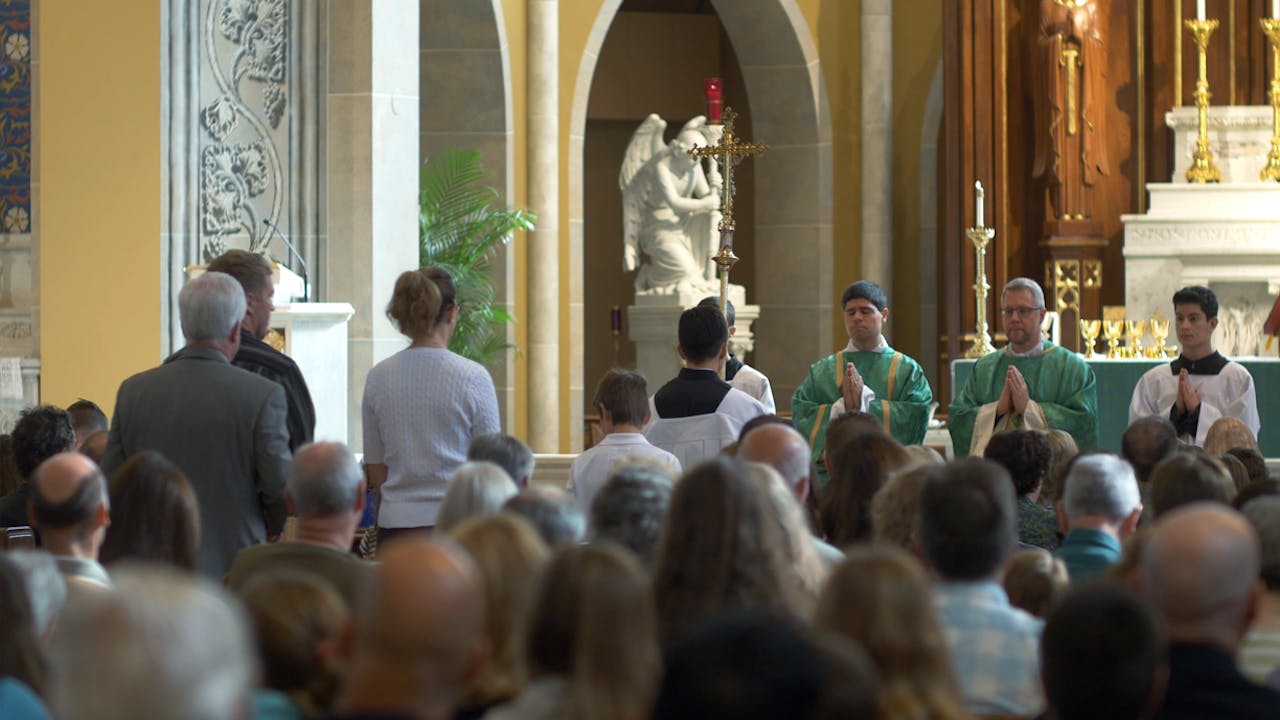That we may obtain this faith, the Ministry of Teaching the Gospel and administering the Sacraments was instituted. For through the Word and Sacraments, as through instruments, the Holy Ghost is given, who works faith; where and when it pleases God, in them that hear the Gospel, to wit, that God, not for our own merits, but for Christ's sake, justifies those who believe that they are received into grace for Christ's sake. (AC V)
While some in the modern liturgical movement had the goal of turning the Divine Service into a production of many actors doing many things, active participation has always meant receiving God's gifts by faith and responding with thanksgiving and praise. It has never meant, at least until modern times, that everyone had a part to play in some form of leadership role in which the pastoral office was director and acting coach. The end result in all of this is that the primary role of the baptized has been turned into something tangential and secondary. The first and foremost role of the baptized in the Divine Service is to receive the gifts of God with faith, to give thanks, and to offer praise to the God who gives them. This is, after all, why the means of grace exist -- to prompt such faith, sustain it, and enable the faithful to give thanks and praise to the God who gives them forgiveness, life, and salvation.
So often I see this either minimized or dismissed entirely. It can be as simple as the pastor who insists upon voicing the spoken and sung parts of the laity or as dramatic as the pastor who insists that mature faith is manifested in assuming some form of leadership role within the Divine Service. In either case, the end result is to say that what the baptized are doing is not important and what the pastor is doing is the only thing that is important. The true liturgical movement restores the dignity and nobility of the baptized as receivers of God's gifts and responders to those gifts with praise and thanksgiving. The mass is not a performance before spectators but the place where God engages us with His Word and Sacraments through which He works faith in us and keeps that faith living and active. Surely this is encouraged when the people know the rites and understand the what the rites say but it is primarily not cerebral (the error of Protestantism) nor is it emotional (Pentecostalism), it is for faith.
The liturgical song of hymns that reflect the Church Year and the lectionary, the singing of the Psalms, and the ordinary are the domain of the baptized. The Church's song presumes singers. While for a time this was lost as professional performance became the domain of the liturgical choir while the congregation was silent before the Lord, part of the Lutheran reform was to restore the voice of the people to the Church's song. Oddly enough, we have seen Evangelicalism silence the laity again by creating commercial Christian music which is the domain of the band or soloist and the people turned from a liturgical assembly into an audience.
The voice of God's people at prayer is also the focus of the true liturgical movement. As Scripture reminds us, the Amen is not a perfunctory word but the sound of the faithful speaking from their faith, both affirming and owning the prayer as their own. Sadly, this has been so abused that in too many parishes the Amen has become a mumbled ritual word that does not reflect the faith and the faithful seeking the the Lord's will to done among them. With this has come some disdain for the practiced prayers of the collect and prayerbook, as if prayer were best when it were individual, spontaneous, and creative. Part of the fruits of a true liturgical renewal is to reclaim the discipline of the hours, of times of morning and evening prayer, and the liberty bestowed when the rites become part of the piety, teaching us to pray even as they prompt our prayers. Sadly, at the same time the Divine Service was become more normative for the principle weekly gathering together of God's people, the prayer offices began to slip into obscurity until we face a day when even clergy are incapable of praying Matins or Vespers without the prompting of a book. Luther's Catechism included the barest outline of a prayer office for morning and evening devotion, one that connected by the the text of the creed and Our Father to the common prayers of the Divine Service. Again, it is our loss that these have been lost even as other things gained by the liturgical movement.
Just as the baptismal entrance into the Church became more regularly part of the Divine Service and within the larger assembly of the congregation, the funeral rites began to disappear. How sad it is that funerals have become the domain of the funeral home more than the church! How pathetic it is when even the Christian dead are cremated or laid to rest without any formal or public rite! Indeed, it is ever more common to read in the abbreviated obituary that no services are planned -- that in eulogy which is more likely to mention the favorite cat or sports team than the church or the faith of the deceased. The true liturgical movement works to restore the ending of this mortal life to the life of the church just as baptism was encouraged within the Divine Service.

No comments:
Post a Comment